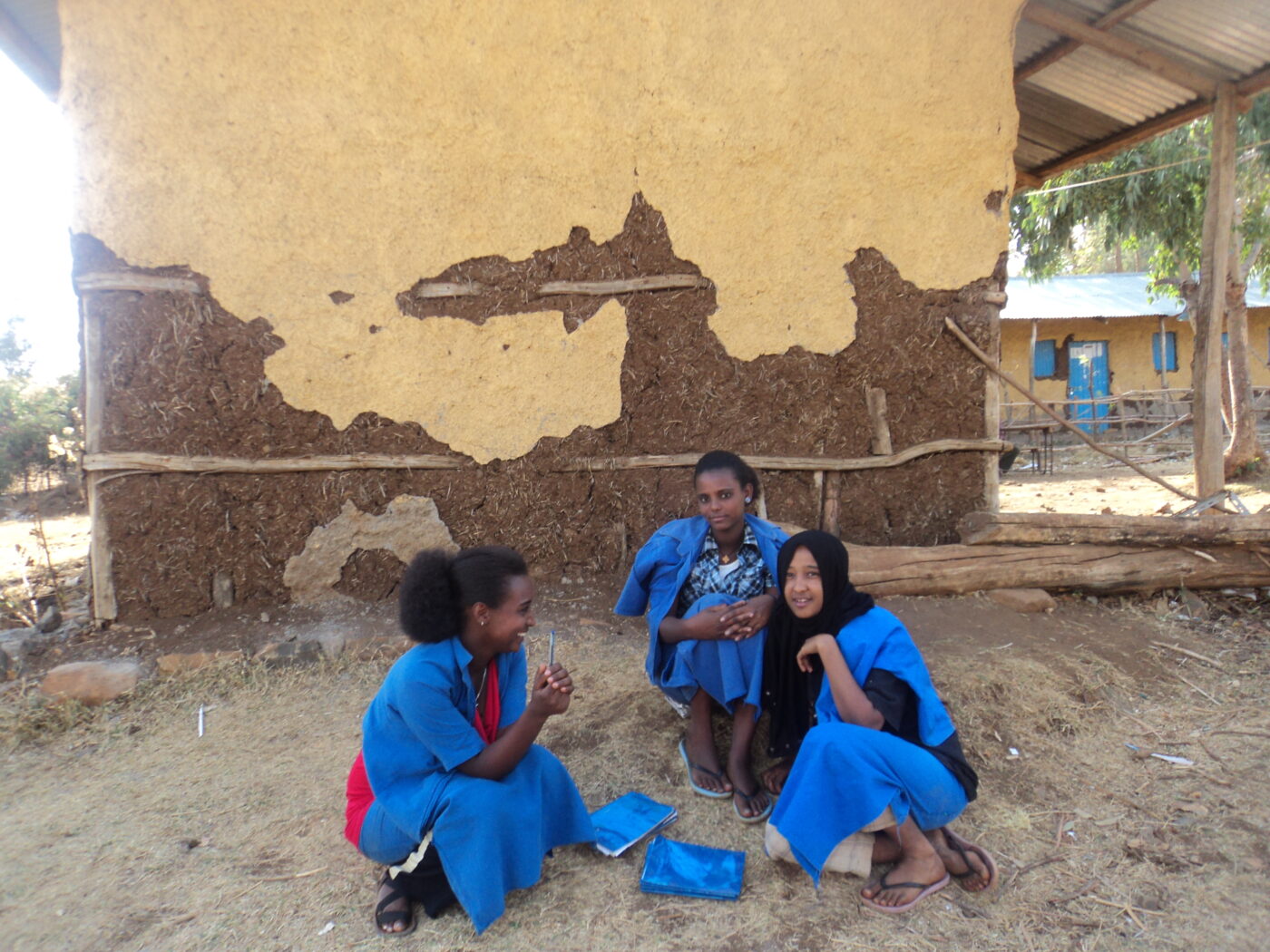Ethiopia has the 14th highest prevalence of child marriage in the world, many girls are at risk of gender based violence, and they are more likely to drop out of higher education than boys. The Lijinete women’s network is a community project set up in 2019 to identify and support girls who are at risk. The network is made up of women who have been affected by child marriage and child motherhood – they received training and support to safeguard other girls in their communities.
40% of girls in Ethiopia are married before the age of 18 and 14% are married before their 15th birthday.
(Girls Not Brides, 2021)
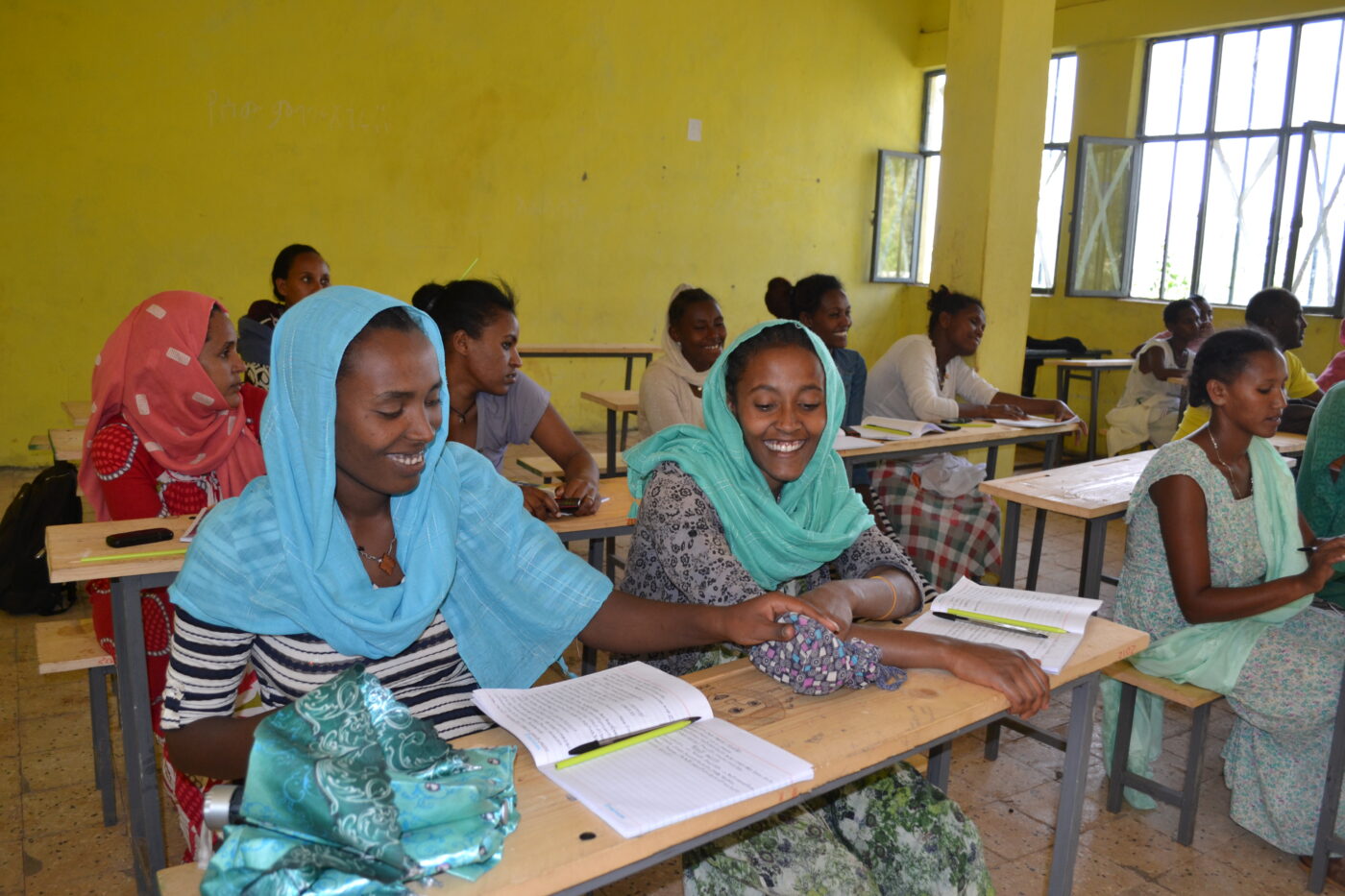
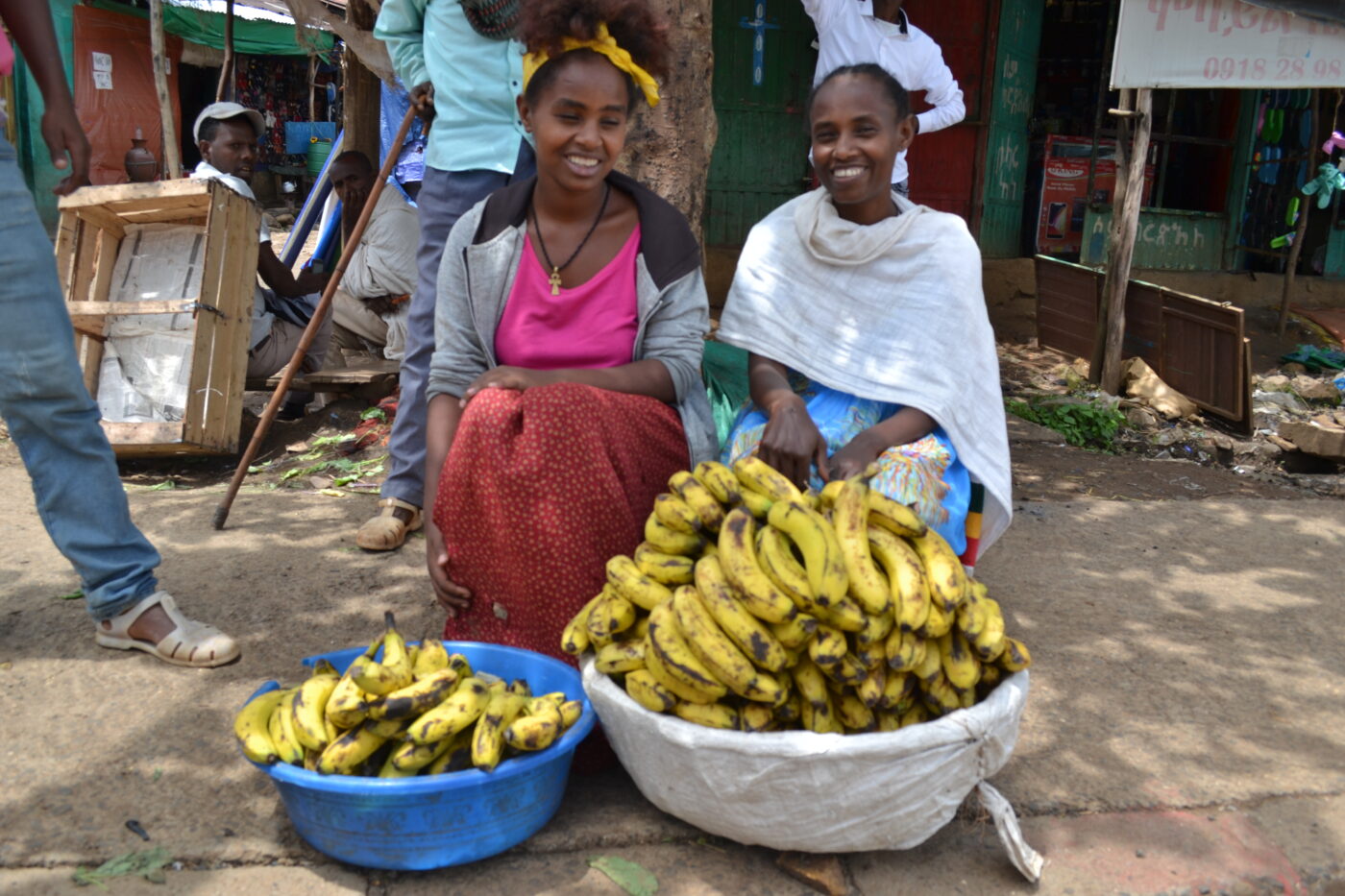
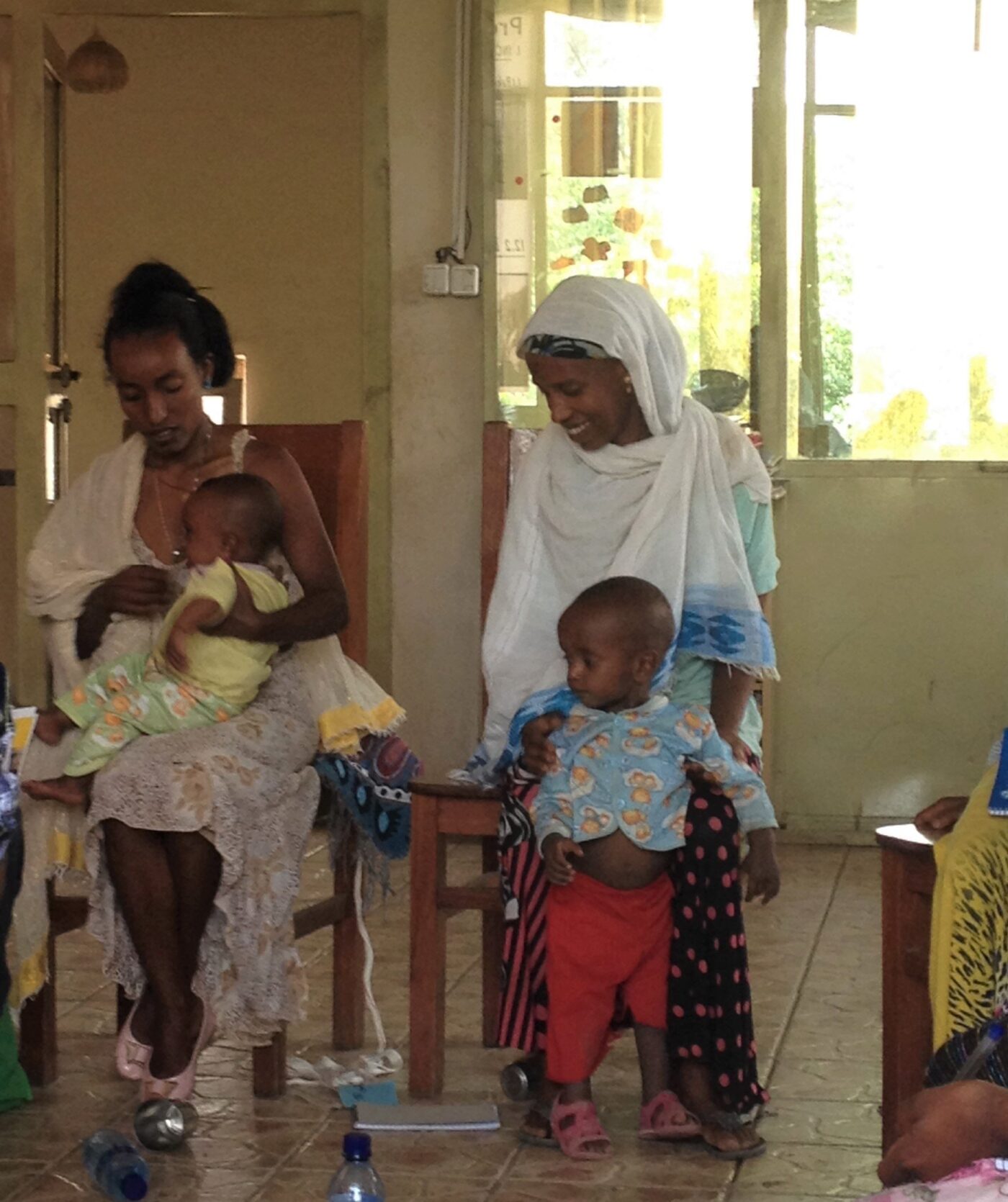
Overview of the Project
The project was run in partnership with FORWARD, an African women-led organisation working to end violence against women and girls. Following research conducted by FORWARD in Tikil Dingay, a village on the outskirts of Gondar, we were able to identify and develop a network of local women affected by child marriage who were willing to support other girls at risk.
Starting in August 2019, we worked with 13 women to provide:
- Leadership and confidence training: The women learnt how gender affects roles in society, about sexual and reproductive health and rights and how to support girls at risk of child marriage and sexual assault.
- Business training and start-up loans: Loans to start their own businesses, and training on how to manage them, enabled the women to become financially independent.
- Monthly peer meetings: regular meetings with each other and our staff provided an opportunity to discuss their businesses, cases where they have supported girls, and to provide peer support to each other.
13 members of the network supported over 185 other girls and women in their communities.
Support in the Community
Following the successful completion of the Lijinete Women’s Network Project, the women reported feeling more confident about speaking up in the community, felt they were able to help other girls in their community, and that they had a better income and greater financial stability.
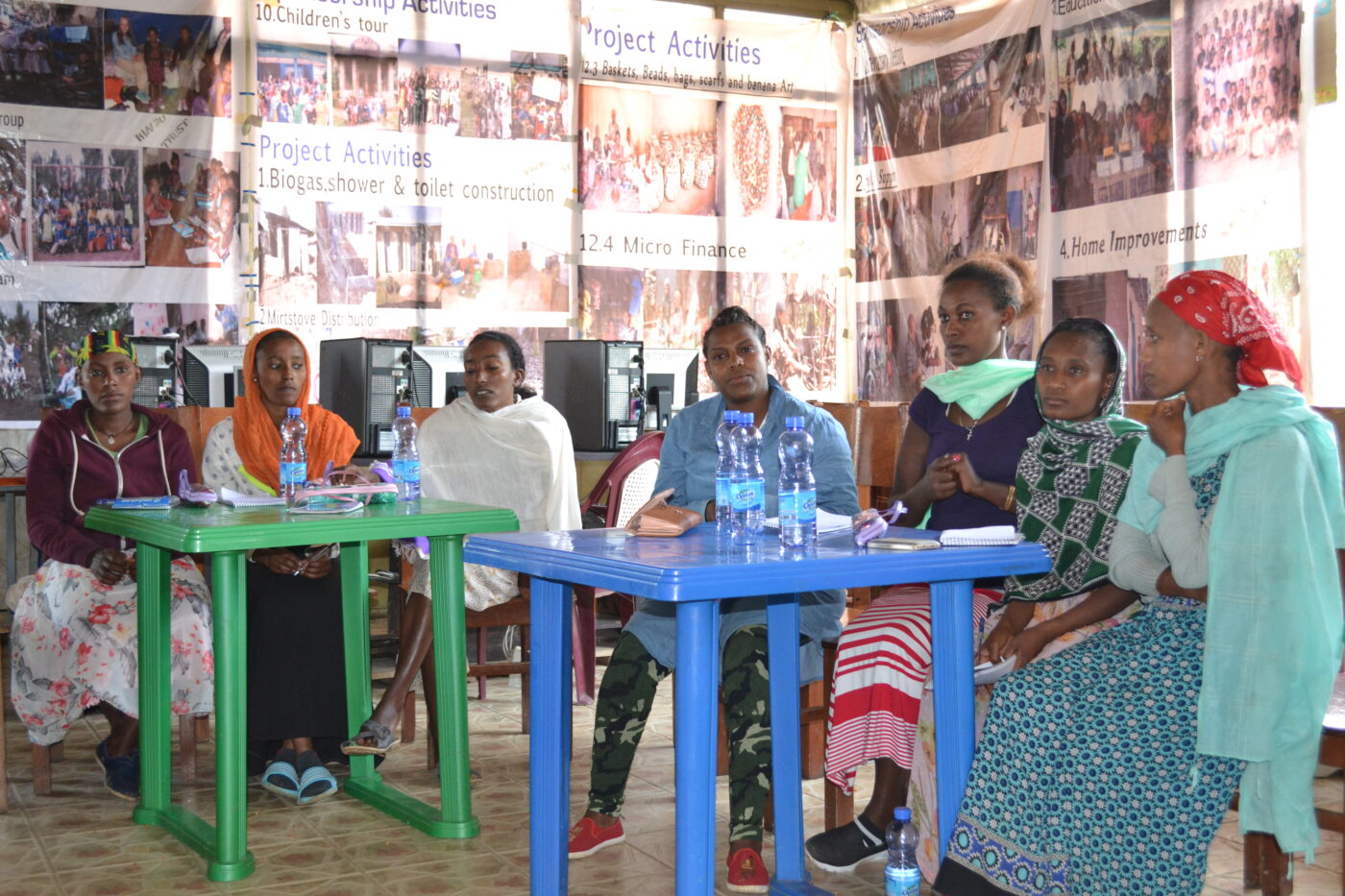
“When I was in a rural area I heard a boy who was kidnapping a girl on her way back from school. I intervened and the boy ran away, then I contacted the local authorities to report it and stayed in contact with the girl’s family to help her.” Yalemwork Ewudie
“A female student from my area who was only 12 years old had made an agreement with a 20 year old man for marriage. I spoke with her and explained about early marriage and why it is not good and she should wait instead.” Belaynesh Simagne
Financial Independence
As well as having an impact on the community, the women were able to make successes of their businesses despite a number of difficulties. The network members faced a number of challenges in running their businesses as there was local unrest at the outset of the project, this was followed by the coronavirus pandemic and subsequent state of emergency, seriously limiting local demand. Nonetheless, the women have managed to sustain their businesses, all reported increased income and they were even able to save funds, which we matched at the end of the project.
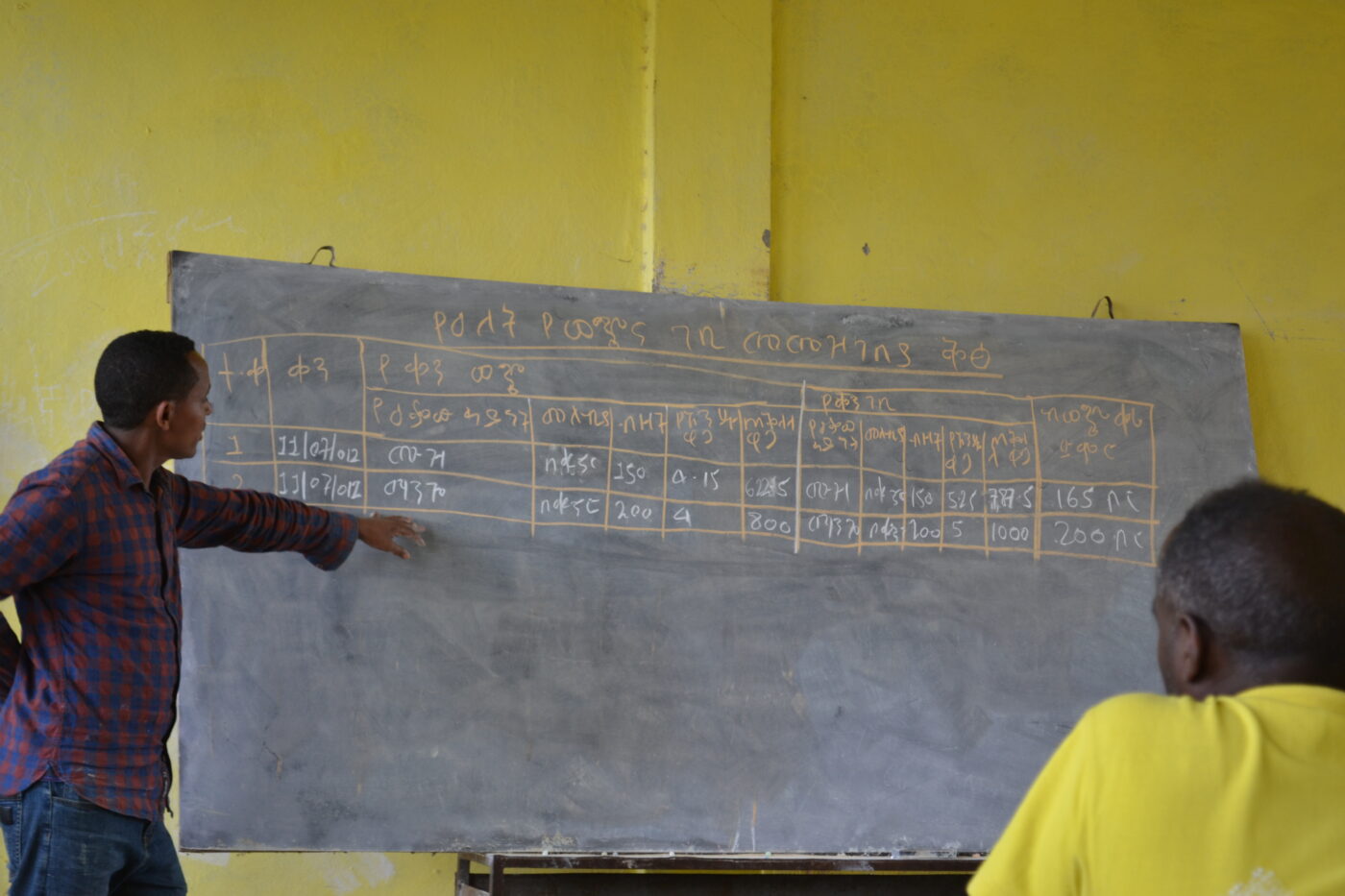
Impact of the Project
At the end of the project, the network members identified the following as being the most significant changes to their lives:
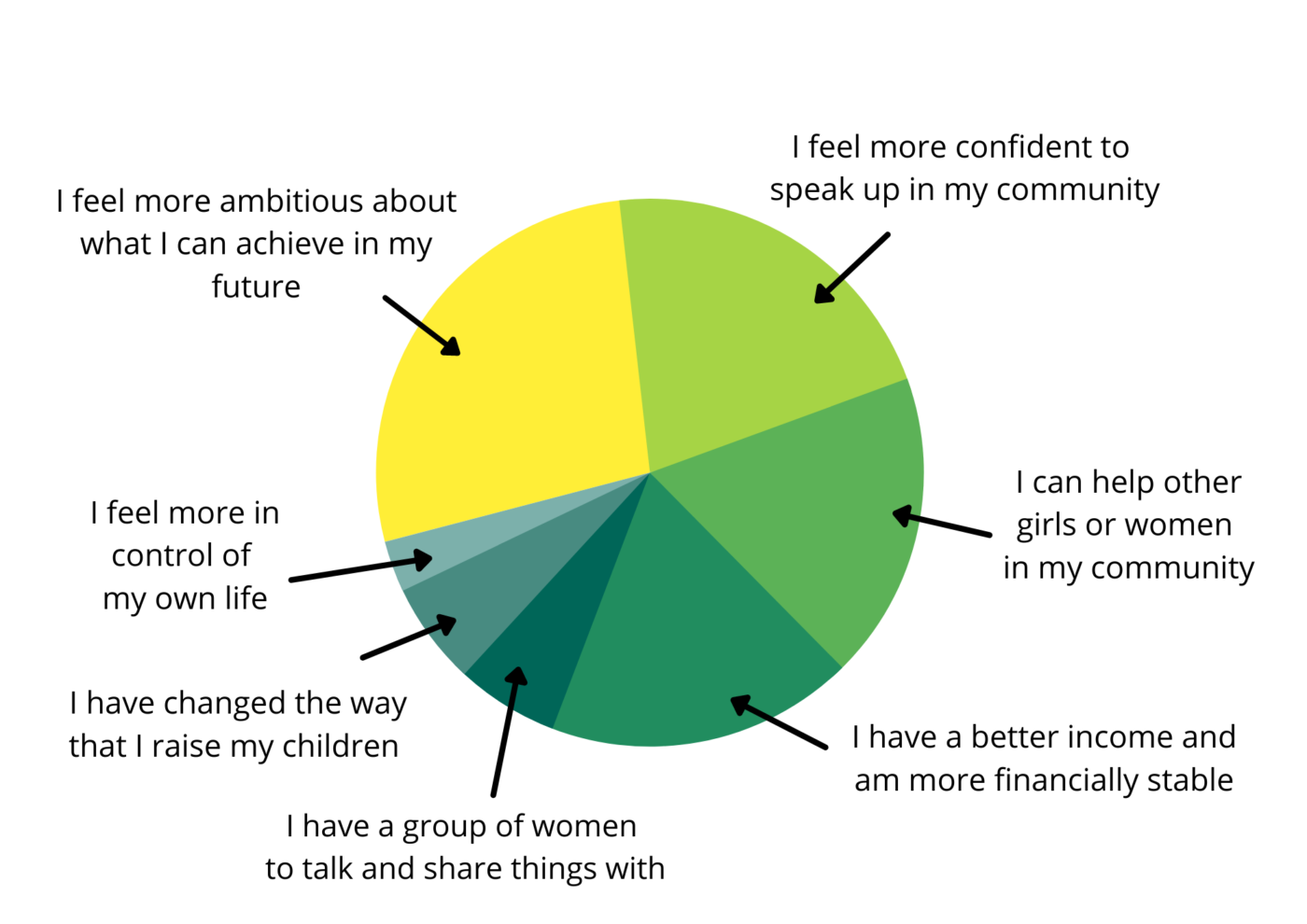
The project has been handed over to the local Women, Children and Youth Affairs office so that the network members can continue supporting girls in their community in collaboration with the relevant support locally. We will continue to connect with the network members and involve them in our projects more widely. They will be joining us as guest speakers in our Future Girls: Confidence in Education project where they will lead sessions with male and female students to explore difficult topics such as consent and early marriage.
Can You Help?
- £15 could provide a girl with a period pack and training
- £40 means a guest speaker can visit and inspire a girls club
- £150 funds a discussion and awareness training session for teachers at a secondary school
